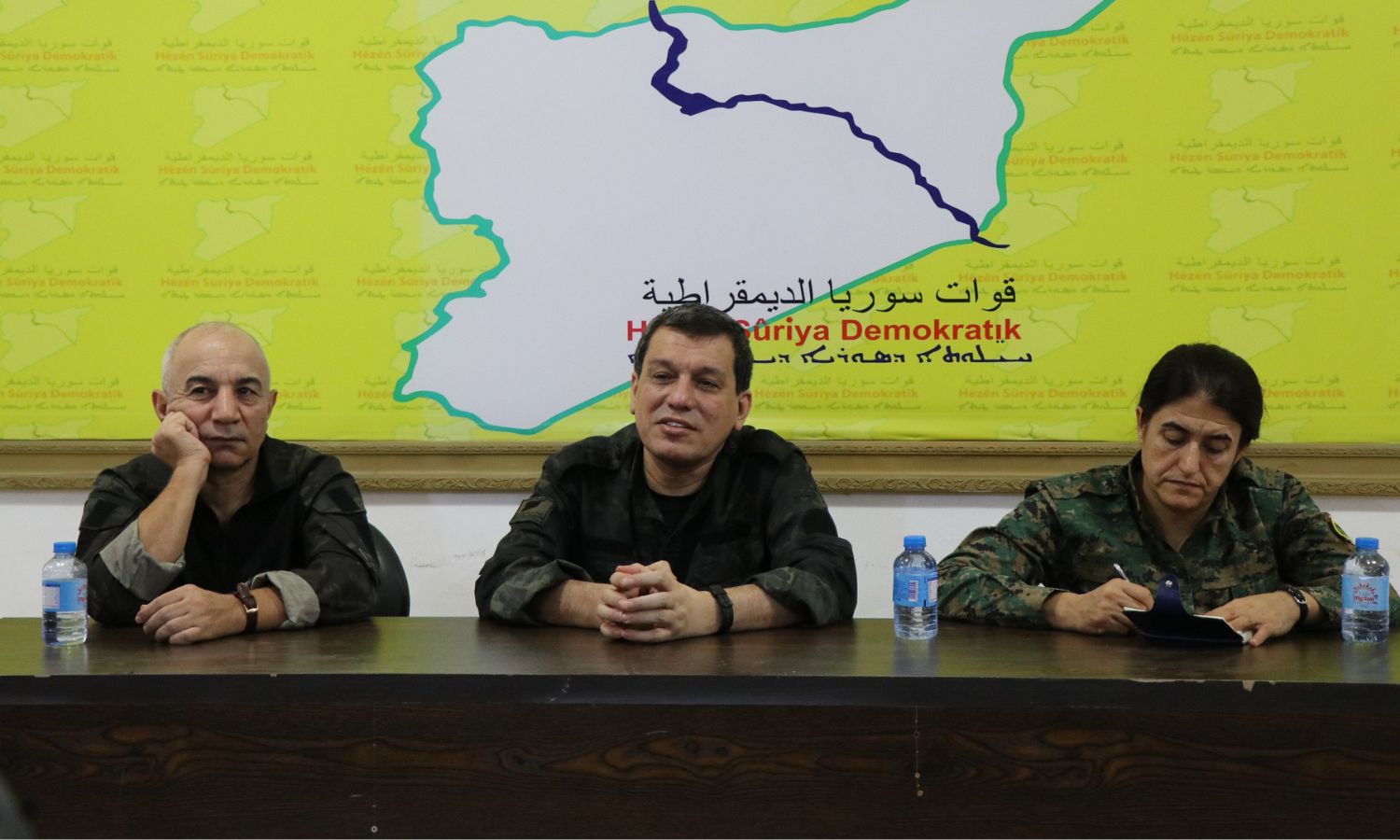



The commander of the Syrian Democratic Forces (SDF), Mazloum Abdi, announced a general amnesty without exception for the wanted individuals in the Deir Ezzor area in eastern Syria.
Abdi linked today’s amnesty decision, Saturday, December 7, to the SDF’s progress in Deir Ezzor to secure the area amid ongoing field changes, as he stated.
He called on everyone to cooperate to “maintain security and peace,” pointing out the reliance on the role of the locals and tribal leaders to prevent chaos and protect the region.
This amnesty comes after the SDF entered the city of Deir Ezzor following the withdrawal of the regime’s forces from it, and its control over al-Bukamal on Friday, December 6.
The SDF stated that fighters from the Deir Ezzor Military Council affiliated with it spread throughout the city of Deir Ezzor west of the Euphrates River, justifying the deployment due to recent developments “which pose a threat to the security of our people and our region in Deir Ezzor,” following the advance of opposition factions and the activities of the Islamic State group.
A reporter for Enab Baladi in Deir Ezzor reported that the regime withdrew from the entire eastern western line, including the cities and towns of al-Mayadin, al-Quriya, al-Boulil, and Buqrus, and also withdrew from Deir Ezzor Airport toward Homs.
On July 17, the Autonomous Administration of North and East Syria (AANES), which is the political umbrella of the SDF, issued amnesty for a number of crimes after about two months of promises made to tribal leaders regarding the detainees’ file.
Law No. “10” at that time included amnesty for crimes committed by Syrians before the date of the decision, as stipulated in the Anti-Terrorism Law No. “7” of 2021 and its amendments, in addition to crimes against the security of the Autonomous Administration stipulated in the General Penal Code (No. 2) of 2023.
The categories included in the amnesty were:
A- Half of the term of temporary imprisonment.
B- The life sentence is replaced with a temporary sentence of 15 years.
C- Full exemption from life or temporary sentences for inmates suffering from an incurable serious illness requiring assistance from others for personal needs.
D- Full exemption from life or temporary sentences for those who are 45 years old at the date of issuance of this law.
The law excluded in its third article some cases, including leaders and members of “terrorist” organizations, and those who committed bombings that led to the death of a person.
Article four indicated that this amnesty does not affect the personal right of action, and the affected party can file their claim before the courts of justice in all cases.
The Syrian Network for Human Rights (SNHR) documented at least 196 cases of arbitrary detention in Syria last November.
Of these, 84 cases were at the hands of the Syrian regime, 36 cases of arrest were by armed opposition factions (the Syrian National Army), 39 cases by the SDF, and an additional 37 cases by Hayat Tahrir al-Sham (HTS).
if you think the article contain wrong information or you have additional details Send Correction